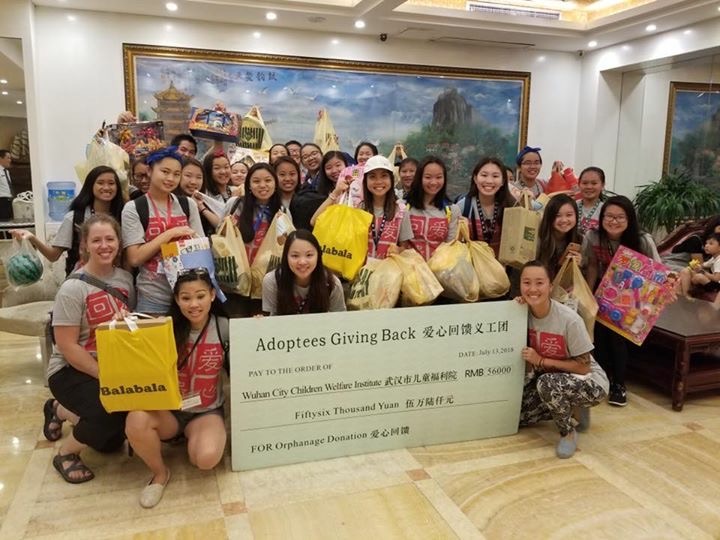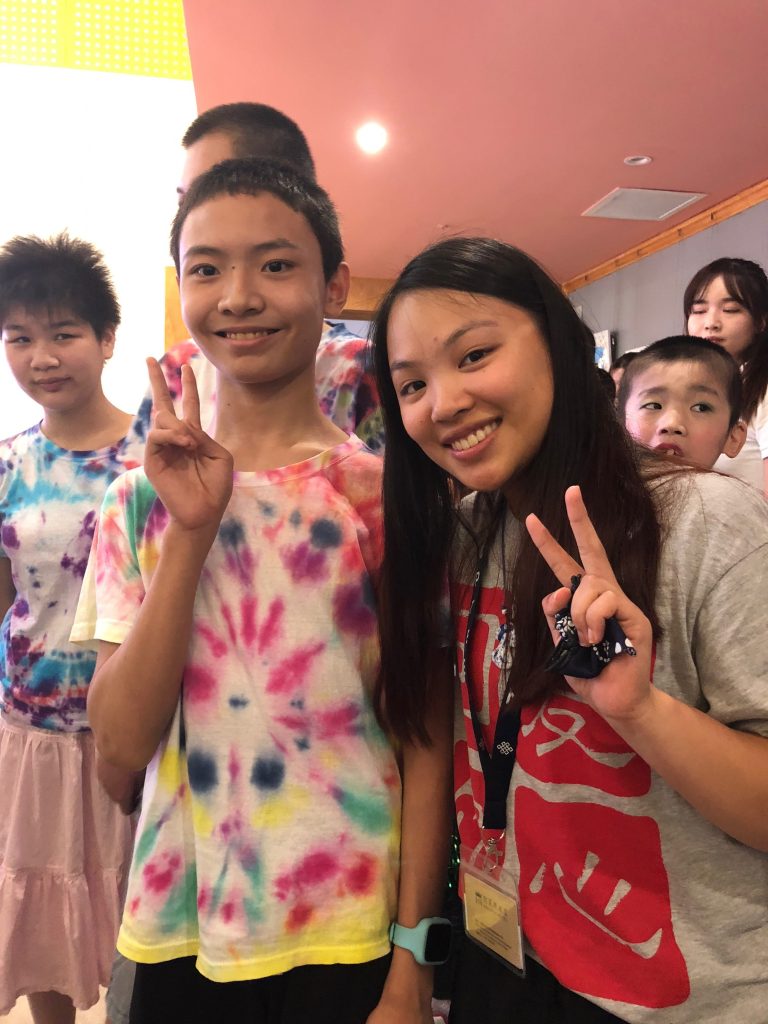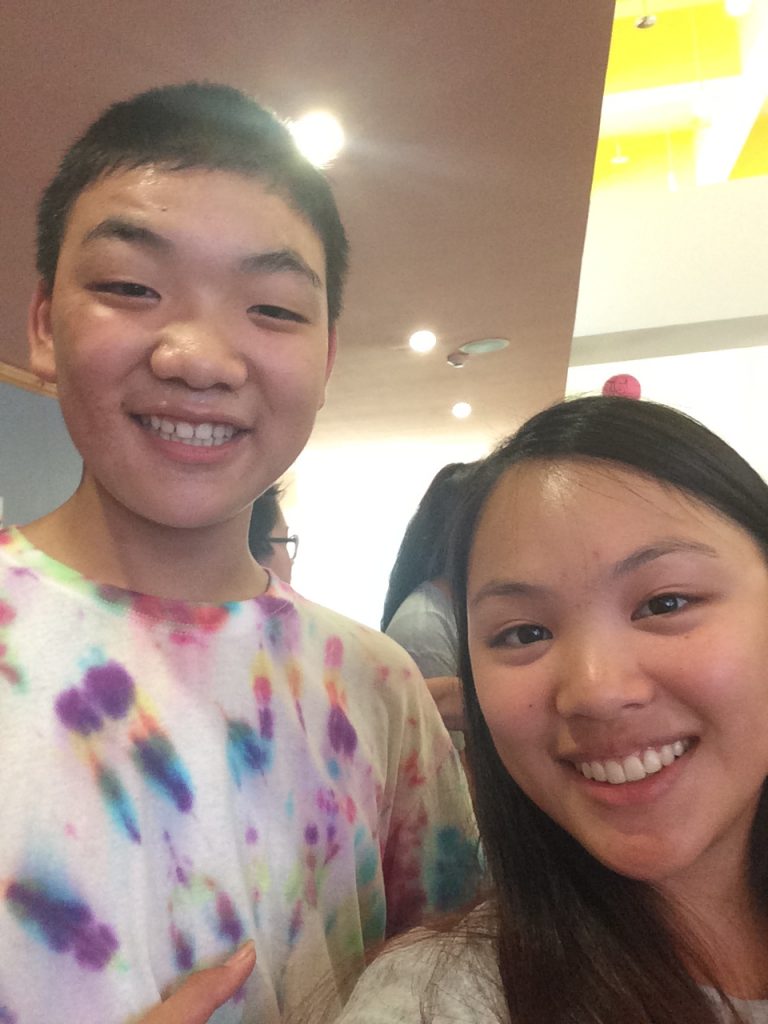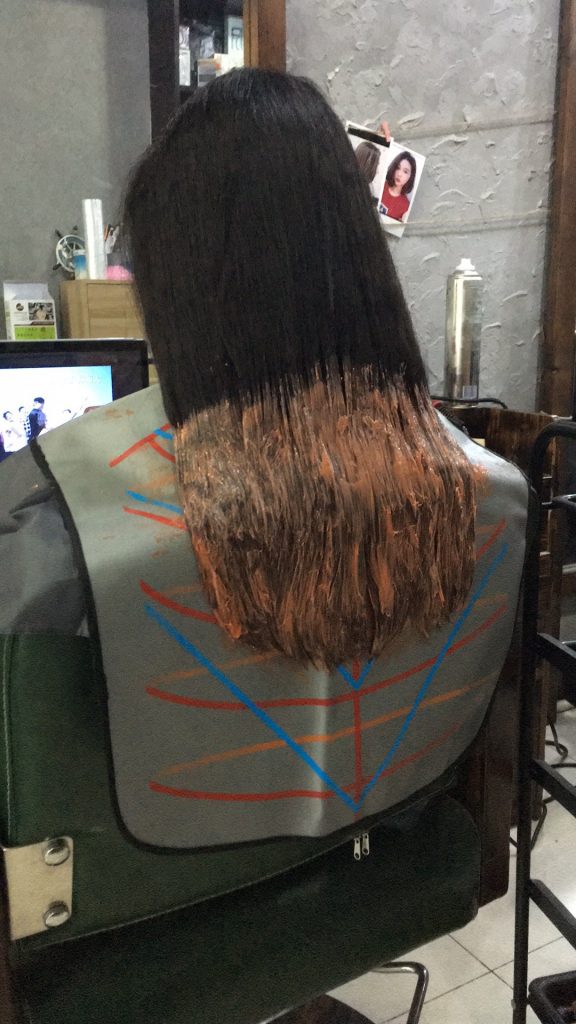
It was July 11, 2018 when I stepped into the small hair salon with my new friends and tour guide. As I relaxed into the black leather chair and stared at myself in the mirror, I tried to catch a glimpse of the lower half of my hair, which was soaked in red hair dye. It’s too late to turn back now. I would have been lying if I told you I was not nervous. I had not asked my parents for permission to do this, I had never done this before, and I was in a foreign country doing it for the first time. Even with all of the consequences and anxiety I was setting myself up for, the perfect timing and place put me at ease.
The first half of the service trip had passed and only two days remained, yet I felt like I had changed more in that week than in my entire life. Growing up in the deep South, I seldom met anyone like me—a Chinese adoptee. I grew up with other kids questioning my family, my religion, my intelligence, and my appearance. Telling people that I was adopted became an automatic response, always followed by awkward silence.
Adoption has a bad reputation. People learn to pity the adopted. Otherwise, it’s kept a total secret. International adoption from China has an even worse rep. People say that Chinese people hate girls. Others think that something has to be “wrong” with you for your birth parents to give you up for adoption. While these examples are extreme and vary from case to case, they do exist and my perception of being adopted was warped to match some of these assumptions.
This was no ordinary service trip and I knew that going into it. This trip was designed intentionally for Chinese adoptees to return to China and volunteer at an orphanage. Prior to my trip, I envisioned an orphanage as a crumbling, decrepit building. However, over the past couple years the demographics of Chinese orphanages has changed drastically from young, healthy girls to boys with health issues (such as cerebral palsy and imperforate anus). The Wuhan City Children Welfare Institute was recently renovated and the nannies had a touching bond with the kids. Years of studying Chinese at school allowed me to communicate with the nannies and children, bringing me even closer to the place where my story began.
Walking around Wuhan, I learned more about Chinese people’s perspectives on adoption and even discussed the topic with my hairdresser. The concept is still misunderstood, but I could tell that the stigma was slowly changing. Being able to speak to so many people allowed me to learn more about Chinese culture, giving me knowledge of Chinese adoption that I can now share with my community to change these misunderstandings.
As I walked over to the sink and had the dye rinsed out of my hair, I grinned up at the ceiling. The hairdresser began to blow dry my hair and I continued to smile as I noticed the red hue on the ends of my hair. My family and friends still do not understand why I dyed my hair. While part of it was from being inspired by my new friends, the true reason was to manifest a positive emotional change.
Dear Reader: This page may contain affiliate links which may earn a commission if you click through and make a purchase. Our independent journalism is not influenced by any advertiser or commercial initiative unless it is clearly marked as sponsored content. As travel products change, please be sure to reconfirm all details and stay up to date with current events to ensure a safe and successful trip.



i wish i was chinese